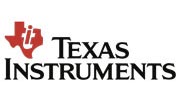Filter interviews by
Intel Interview Questions, Process, and Tips for Freshers
Intel Interview Experiences for Freshers
57 interviews found
Interview Preparation Tips
Experience: This was the most important thing that mattered in my case as I had no internship experience. I had clearly reflected my strong points in my resume.
Tips: CPI plays a major role.
Revise everything you write in your resume thoroughly.
Round: Interview
Experience: The interview lasted for around 20-25 minutes. I had mentioned my interests to be logic design and computer architecture, basically
the hardware profile, in my introduction. So I was asked some questions on architecture like ILP, Superscalar and out-of-order processors, If Intel’s processors are out-of-order, etc. the entire flow of questions was based on my answers.After these, I was asked HR type questions like my interests apart from academics, where do I see myself 5 years down the line, why not PhD , if I would like to work in US, etc.The interviewer had read my resume thoroughly and probably was impressed by it, and I was not asked any questions based on my resume. Good CPI and all courses and projects strongly aligning with Intel’s work was strong point in my selection.
General Tips: If you are targeting core companies like Intel, choose the right courses and thesis (like Microelectronics/VLSI) in your third year and do them sincerely. Do not mention that you want to do your PhD.Intel does not prefer B.Tech Students, so watch out for that while choosing your target companies in placements.
College Name: IIT KANPUR
Motivation: I had strong interests in Computer architecture and VLSI. So basically I was lookingfor a job in hardware profile in semiconductor industry and Intel is the biggest name in the semiconductor domain, thus making it my first choice.
Interview Preparation Tips
1. Always stress on learning the concepts, not the course.
2. Have faith in yourself and your abilities, and thus be confident. You have made it so far and you may not be the best, but you certainly are good. (For a fact this may not necessarily be true but saying this to yourself once in a while helps build self confidence).
3. Know that the one interviewing you may or may not be an expert in the area you are good at. What this means is expect questions on each project that you have done, because if he/she is an expert in the area of even one of your projects, get ready to be screwed on that one.
With this in hand, and by talking to your seniors learn the smaller yet important points of what a company desires, what this kind of job demands from you. Luckily if you are a dual degree student you will have a fabulous experience of seeing your batch get placed, so just help them prepare in whatever way you can, as if even you were to sit in the interviews. Best way to fast pace your preparation is to do it with people you are real comfortable with. (This is so because if they take a mock interview they know what exactly could make you
uncomfortable, your closest friends know you best. Ask them to mock interview you and screw you hard enough to see how much stress you can handle). Having a few leadership and team work skills is always an added bonus to your resume, make sure at least one such point is a spike (or high impact) in your CV, and highlight it
well. Make sure you know adequate examples to back it up. In a lecture by Dr. C.V.R. Murthy he once told “When you need to present yourself to someone on a topic XYZ make sure if you know 100% you only tell 10% because then you can use the rest of the 90% to answer questions which are extensions to your work”. This aspect is something you should follow throughout your UG career. When you write a term paper, when you do a project always document it so that you have a copy of what you did. For example till this date I have done like over 25+ projects at IITK, but I have documentation for only 19. This led to the fact that I could not put those 6 projects in the best way I could, because I could not even remember how I had done it. Now you would want to object here, “How the hell am I supposed to write just 10% if I haven’t done enough and to make my resume good I need to write a few things which I hope I will be able to explain.”
If you are a final year student reading this, then I don’t have a answer for you so far except that try to make the best use of your BTP. However, for others make sure you don’t lose the heart to learn things that go beyond the scope of the course and sometimes your project. Remember that your achievement are not important always, what is important is how you achieved it. What challenges you went past. You did a great job if you over came a dozen challenges to achieve a single point of success, than if you had a project which had just one challenge and you could achieve it with impressive results.
How I got success:
1. Did PI, GD, Mock Interview sessions with my batch It helped me achieve better control on expression, accent and ability to speak with a good flow. Practicing PI’s is important so that your answers to the generic HR kind questions become more structured after each PI you take.
2. Always documented my work
This helps you because it will reduce your revision time from weeks to a couple of hours (if you did the projects yourself) else from months to weeks at least.3. Know what courses are important for Job preparation. Once you know this before hand, make your you give these courses adequate time while studying, for example for EE students with interest in microelectronics courses like EE610 and EE619, EE210, ESC102 and EE370 are extremely important. So rather than revising these in the end (which is like an enormous task) try to emphasize on them while they are taught. This will reduce the time you will need in the end to revise the basics.
4. Internship/BTP/M.Tech. Thesis
This is going to be a definite question in your interview. So prepare it well, this is one section where B.Tech student have a heavy advantage, they have all these afresh and hence can explain it on a day to day basis. Whereas M.Tech/Dual students have done their interns long time back. Thus, may not recollect it to the best of their knowledge, so I spent time here to revise my intern well. Because it was one aspect which was connected to all the courses I had done and I could really make a good impact here if given an opportunity. (Lucky for me I got
that).
5. Practice Standard Questions
I spend most of my time doing this, than revising courses. Did as many practice questions as I could, If I did not remember some topic I went back and revised it. But never during the prep did I open a book to revise an entire course.
6. Know the company
This is perhaps the place where the company gives you an opportunity to show how much you know and care about them, how much are you attached to this job, and how much you like it really. Read as much as you can about the company. I spent like 5-6 hrs before the interview to do this. The Interview:
1. Be well dressed, hold good posture and show you are confident yet anxious.
2. You and your interviewer are equals so talk like that, assume you have a job and you are going to take it. He is not someone so great that you need to fear him. Try to talk eye to eye, speak with confidence (even if you know you are wrong).
3. Pause before you start answering (take time to think) or you can fall in trap question like a piece of cake.4. Show your approach and thought process, be aware the counter questions he/she asks can be to check your confidence or in reality to correct your mistake.
5. Given an opportunity to answer a open ended question, make the best use of it. For example I screwed up my first interview trying to explain my Internship, but I adapted quickly and after 30 mins in my second interview I gave a much better explanation.
6. Sometime you might be asked a field/course of interest; tell the one you are great at. Thus find a good justification to prove why it is your favorite if it’s different from your BTP/Thesis.
7. If you get the opportunity to ask a question, ask one which wasn’t brought up in the PPT. If you don’t get an opportunity make one, and still ask the question.
College Name: IIT KANPUR
Interview Questionnaire
8 Questions
- Q1. Differential amplifier, and how to increase its gain and bandwidth ?
- Ans.
To increase the gain and bandwidth of a differential amplifier, one can use active loads, cascode configuration, and increase the transconductance.
Use active loads such as current mirrors to increase the gain.
Implement a cascode configuration to improve the bandwidth.
Increase the transconductance by using larger transistors or adding more stages.
Use feedback techniques like Miller compensation to enhance the gain and b...
- Q2. Current mirror
- Q3. Short channel effects, and how to avoid them during the design ?
- Ans.
Short channel effects are phenomena that occur in short channel transistors, leading to performance degradation. They can be avoided through proper design techniques.
Use proper channel length and width ratios to minimize short channel effects
Implement techniques such as halo doping or pocket implants to control the electric field in the channel region
Utilize advanced process technologies like FinFETs or nanowire transi
- Q4. Output stage
- Q5. Family background
- Q6. Why INTEL ?
- Ans.
Intel is a leading technology company known for its innovation, global presence, and strong market position.
Intel is a pioneer in the semiconductor industry, with a long history of technological advancements.
The company has a strong global presence, with operations in over 60 countries.
Intel is known for its commitment to research and development, investing heavily in cutting-edge technologies.
The company has a diverse...
- Q7. What is your stand on ethics ?
- Q8. Are you a team player ?
Interview Preparation Tips
Experience: It had 2 rounds. They shortlisted students for 4 different profiles (Analog, Digital, Architecture and Structural design).
Briefly discussed the intern work. The interview ended with discussion on INTEL's latest technology and how Bangalore center works towards achieving it.
Tips: For analog, prepare basics like single-stage amplifiers and differential amplifiers well.
Round: HR Interview
Experience: They were looking for someone with sound fundamentals and ability to think if confronted with a problem rather than doing
mundane spoon fed work.
Tips: Most importantly know your resume in and out.
College Name: IIT KANPUR
What people are saying about Intel






Interview Questionnaire
2 Questions
- Q1. Give instance when you stood up for your belief and convinced others to go along with you
- Q2. How did you stopped someone doing something that is not right...?
Interview Preparation Tips
Experience: Not very clear but major role players were CPI and Projects.
Tips: Do write your area of interest clearly and your major projects you are highlighting in your resume should be of that area, otherwise they might interview you for wrong area and you might miss out as few students did. So be clear about that. And don’t think you can get away with casual or fuzzy answers.
Round: Interview
Experience: Technical Interview was related to the field they have shortlisted you. There were 3 panel for EE guys,1 for shortlisted candidate for Analog Area, 1 for shortlisted candidate for Digital and 1 for Architecture. For me it was mixed of Analog and digital with some device also. Questions regarding Short channel effects were asked. Then questions related to Diff-Amp were asked. Then there were questions on Digital logic, need of C-Mos , Charge sharing and distribution in C-Mos devices, Capacitance curve and its region. And then there were questions on Timing Issues, skew, jitter and some tricky question revolving around timing analysis. Questions regarding data transfer and propagation and read-write methodology were also asked. It was not about finding an answer it was finding how depth and clear knowledge a candidate has and what is his/her thinking process. If you get stuck somewhere while answering they will give you hints but don't seek hints for every answers.
Round: Interview
Experience: HR questions were the usual questions which are generally asked everywhere, revolving around judging my character. Few scenarios were given which conflicts between ethics and personal gains.
General Tips: I always intended to find a core job in semiconductor industry and for the same I planned my curriculum inaccordance with it. I took all courses related to VLSI area EE dept has to offer which included digital, analog and devices. I learnt some architecture also with the help of my batch-mates who have done CSE architecture course.
For those who are planning to get a core job my suggestions would be: Maintain a good CPI as it is the first criteria they will shortlist you.
Have good understanding of the subject. Do study devices also as companies frequently ask questions based on devices and practice from yourself.
Don't rely on SPO as they will not be preparing you for core companies. Do get information from your seniors about the preparations. If you have done your courses sincerely then it will take about 1-2 months to complete the preparations. And prepare along with your batchmates aiming for same area as it will help everyone. Don't try to go alone.
Skill Tips: Since I did courses of all areas of VLSI from devices to digital I was able to answer the wide range of questions put in front of me. I never tried to make a guess, I simply said that some things I forgot, but I was able to say that because most of the questions I was able to answer. Also, I prepared HR questions beforehand and had some instances in my mind to quote when put under those scenario. The probable reasons for my selection were a good CPI , clarity about subject and wide range of topics I covered duringmy courses.
College Name: IIT KANPUR
Intel interview questions for popular designations
Interview Questionnaire
10 Questions
- Q1. Project-based
- Q2. Internship-based
- Q3. Would you like to go for higher studies in future?
- Q4. Where do you see yourself ten years from now?
- Q5. What do you think about the company?
- Q6. What is your family background?
- Q7. Tell us about your ethics and beliefs.
- Q8. How did you like Bangalore when you were doing your internship over there?
- Q9. Where would you like to settle after a few years?
- Q10. Technical -2
Interview Preparation Tips
Experience: Mainly they were looking for my interest in the field of VLSI design and good communication skills.
Round: HR Interview
Experience: Initially they themselves told about the company, what they expected from me, their present work and future. Then they asked a few simple questions.
Round: Other Interview
Experience: Most of the questions asked in the interview focused upon microprocessors. These questions required thorough knowledge about microprocessors. A few questions were very tough such as a question about pipelining which is usually taught in advanced questions. They also asked some electronic questions which could be done on the spot. Besides I was also asked about my B-Tech project and work in summer internship in detail.
General Tips: 1. A B-Tech project in VLSI design and a CPI of about 8.9 was the cut off criteria for B-Tech electrical students.
2. Be honest when making your resume about your project and interns.
3. You need to have good knowledge about microelectronics.
4. Another 4th year course of EE-618(analog circuits) is also helpful.
Skill Tips: In order to succeed in this interview you need to be honest in telling about the projects you have done. They can easily find out if you give them false details about the projects.
Skills: Microelectronics
College Name: IIT- Kanpur
Get interview-ready with Top Intel Interview Questions
Jobs at Intel
Intel Interview FAQs
Some of the top questions asked at the Intel interview for freshers -
The duration of Intel interview process can vary, but typically it takes about less than 2 weeks to complete.
Tell us how to improve this page.
Intel Interviews By Designations
- Intel Software Engineer Interview Questions
- Intel Intern Interview Questions
- Intel Component Design Engineer Interview Questions
- Intel SOC Design Engineer Interview Questions
- Intel Graduate Trainee Interview Questions
- Intel Software Developer Interview Questions
- Intel Software Engineer Intern Interview Questions
- Intel Verification Engineer Interview Questions
- Show more
Interview Questions for Popular Designations
- Software Engineer Interview Questions
- Intern Interview Questions
- Component Design Engineer Interview Questions
- SOC Design Engineer Interview Questions
- Graduate Trainee Interview Questions
- Verification Engineer Interview Questions
- Software Developer Interview Questions
- Software Engineer Intern Interview Questions
- Show more
Intel Interview Process for Freshers
based on 28 interviews
Interview experience
Interview Questions from Similar Companies
Fast track your campus placements
|
Software Engineer
340
salaries
| ₹12 L/yr - ₹45 L/yr |
|
SOC Design Engineer
222
salaries
| ₹11 L/yr - ₹36 L/yr |
|
System Validation Engineer
168
salaries
| ₹8.7 L/yr - ₹38.1 L/yr |
|
Software Development Engineer
156
salaries
| ₹10 L/yr - ₹40 L/yr |
|
Design Engineer
155
salaries
| ₹11.5 L/yr - ₹45.4 L/yr |

Qualcomm

Nvidia

Microsoft Corporation

Advanced Micro Devices
- Home >
- Interviews >
- Intel Interview Questions >
- Intel Interview Questions for Fresher




















